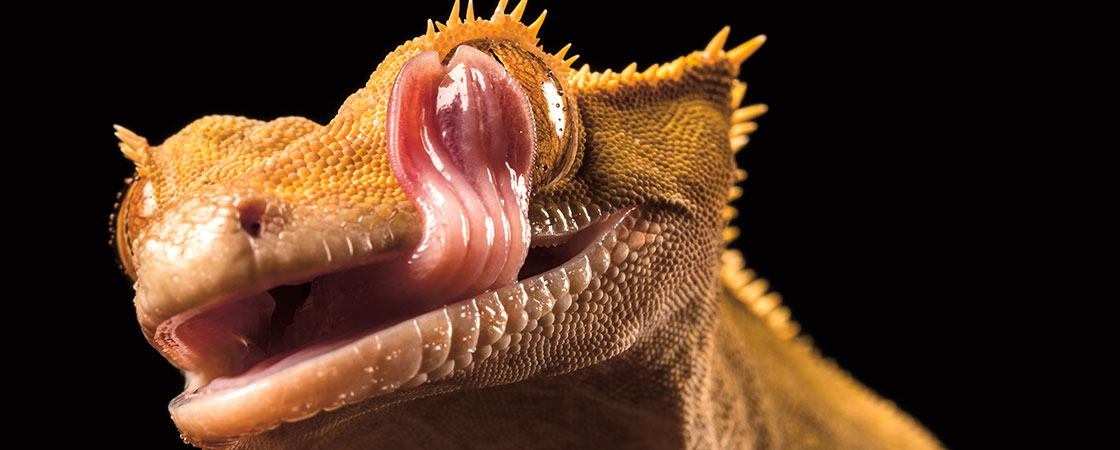Here’s a challenge: Stick out your tongue and try to lick your nose. Could you do it? If so, congratulations. You’re one of the 10 percent of humans who can. Now stretch your tongue farther and try to lick your eyeball. Could you do that? Surely not.
Unless you are a gecko.
Geckos are small lizards found in warm climates around the world. And most species of geckos lick their eyes many times a day. This is not because their eyeballs taste delicious. (Though maybe they do—who’s to say?) It’s because these geckos lack something that humans and many other animals have: eyelids.

